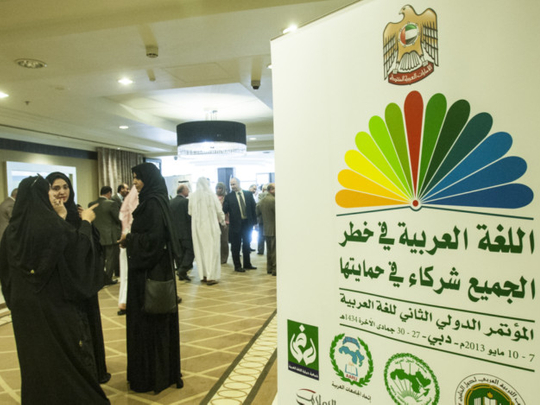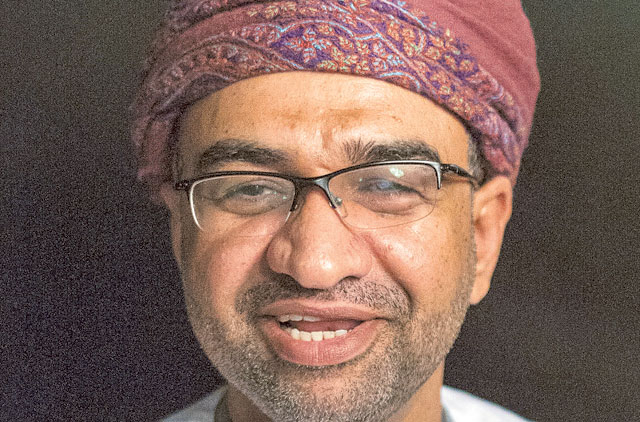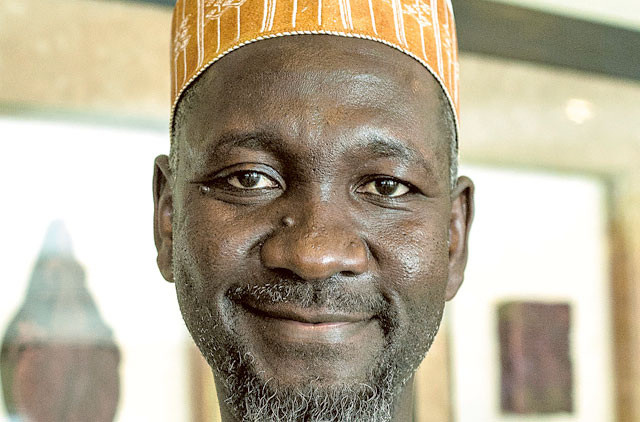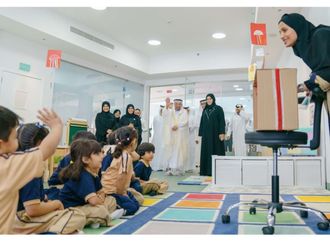
Dubai: The jury is still out as to whether the Arabic language is in danger or not, said experts at the second International Conference on Arabic Language on its second day.
The conference is taking place in Dubai between May 8-10, and is organised by the International Council for Arabic Language in cooperation with Unesco and the Association of Arab Universities. It is organised under the patronage of His Highness Shaikh Mohammad Bin Rashid Al Maktoum, Vice-President and Prime Minister of the UAE and Ruler of Dubai.
The conference has attracted nearly 1,000 Arabic language lovers, scholars and academics from around the world.
Academics agreed that there are challenges affecting the language.
Dr Heyam Al Maamari, Associate Professor of the Arabic Language at Ajman University of Science and Technology, said that she does not think that the Arabic language is not in danger and there are no challenges facing the language itself, but the challenges face the speakers of the language.
“Some of the challenges they face, are the spread of foreign languages, especially English and its dominance in general interactions and communication; the different Arabic dialects that are popular around the different Arab countries and globalisation that is spreading like wildfire between our children.”
She added that an outdated school curriculum also adds to the problem.
“There are many challenges, but there is hope in overcoming them as much as possible — each person within his own capacity.”
She said that she had organized an initiative called “My language my identity” in December last year, which included many activities to promote the Arabic language such as plays, lectures, exhibitions, brochures and posters.
Dr Amal Shafeeq Al Omari, Professor of Arabic language and grammar at the Middle East University — Jordan, said that Arabic language is in danger and is facing steep hurdles.
“We now exchange greetings on our special occasions in English through text messages or social medias, also passerbys in our countries are shocked to see the English names of shops and restaurants with absence of the Arabic name… also each jobseeker makes sure that his CV is in English as if it’s the country’s official language.” Amal said.
A nation that gives up its language or disrespects it, gives up its soul and mind and loses what makes it different,” she said. “Defending and protecting the Arabic language and bringing it back to the lead, especially in our day-to-day interactions, has become a religious and national duty.”
She said that every member should be advocates of preserving Arabic ranging from the mother in her house, the teacher in her school and the storeowner in his shop.
Amal said that there are simple methods to preserve and promote the Arabic language such as the internet with all its elements, making Arabic language-based video games and through various initiatives.
“Why don’t we put signs in streets and shops with beautiful Arabic phrases, why don’t we spread Nizar Kabbani’s beautiful works…”
She said that the blame for the weakening on language is divided between everyone, the parents at home, the school curriculums — which she said focuses on very technical aspects of the Arabic language that pushes students away from their mother tongue.
Amal also said that some of the blame falls on the Arabic teachers in the student’s primary years that are not passionate about the language.
In higher education, she said, students should be given text’s relevant to their major in their Arabic classes, so they do not hate the subject.
Dr Ali Hassan Allawati, from the Ministry of Higher Education of Oman, said that another danger is the use of the dialects,
“If we neglect the Arabic language and use the dialects the Arabic language will become foreign to its own speakers.” He said Arabic language is a uniting language that brings together all its speakers, as dialects are not understood everywhere.
He added that if things do not change and the situation stays the same, with the increase in the use of English language, people might even lose their dialects.














